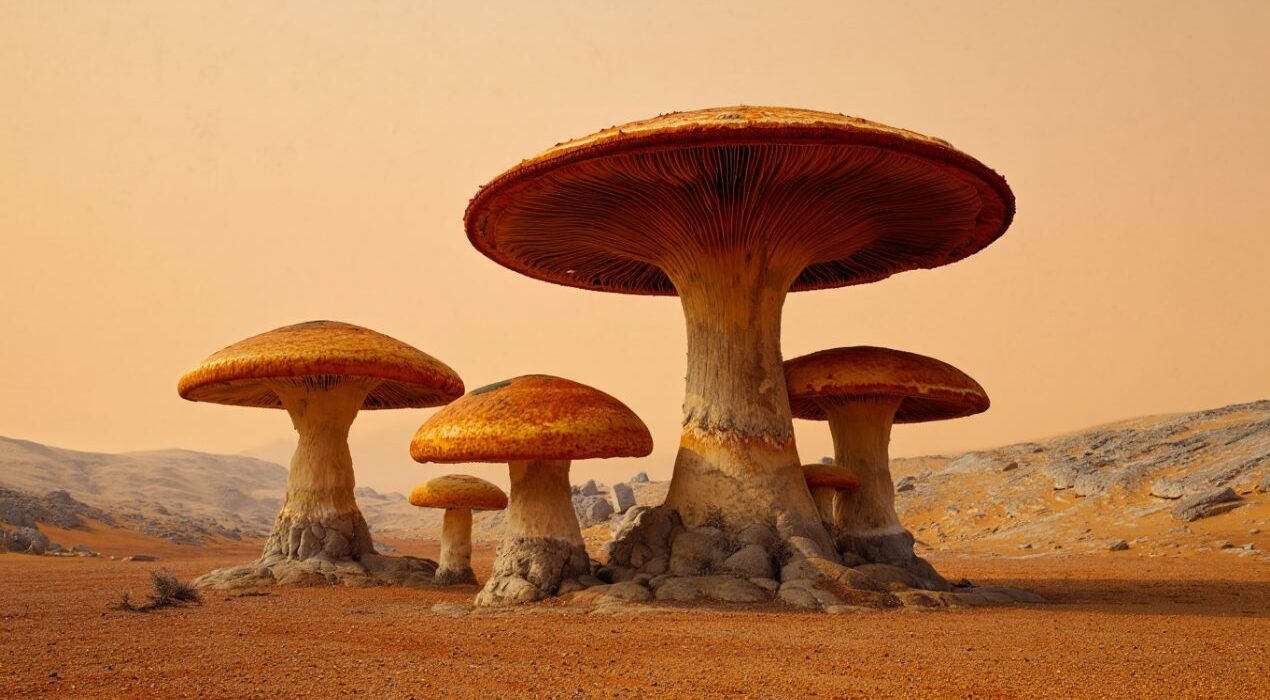Fungi were not background players in Earth’s history. In fact, they may have dominated the planet long before plants appeared.
A Billion-Year Legacy
Researchers from the Okinawa Institute of Science and Technology (OIST) traced fungi back almost a billion years earlier than expected. They combined fossil evidence with rare genetic swaps called horizontal gene transfers. As a result, scientists created a clearer timeline of fungal evolution.
The findings suggest fungi began diversifying between 1.4 and 0.9 billion years ago. This was hundreds of millions of years before the first land plants took root.
Early Ecosystem Engineers
Ancient fungi likely partnered with algae. Together, they recycled nutrients, broke down rock, and created primitive soils. Therefore, they transformed barren landscapes into environments where plants could later thrive.
Dr. Lénárd L. Szánthó, a lead researcher, explained: “Fungi run ecosystems—recycling nutrients, partnering with organisms, and sometimes causing disease.” These early roles show fungi were already crucial to shaping life on land.
Plants did not colonize a lifeless world. Instead, they entered ecosystems already engineered by fungi over millions of years. By cycling nutrients and building soils, fungi created the foundations for future biodiversity.
This research reframes the history of Earth’s colonization. It highlights fungi as pioneers that reshaped the surface of the planet. Their long reign set the stage for plants, animals, and eventually complex life to flourish.






